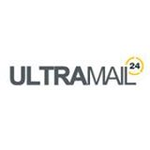Description

Litmus

Recapture
Comprehensive Overview: Litmus vs Recapture
To provide a comprehensive overview of Litmus and Recapture, I'll break down each product's primary functions, target markets, market share, user base, and key differentiating factors.
Litmus
a) Primary Functions and Target Markets:
- Primary Functions: Litmus is a platform designed mainly for email marketing optimization. It provides tools for creating, testing, and analyzing emails to ensure they render correctly across different devices and email clients. Key features include email previews, spam testing, analytics, and collaboration tools.
- Target Markets: Litmus primarily targets medium to large businesses, marketing agencies, and enterprises that heavily rely on email marketing. Its advanced features cater to teams and companies that need detailed insights and extensive testing capabilities in their email campaigns.
b) Market Share and User Base:
- Market Share: Litmus is considered a leading tool in the email optimization space. It has been around for quite some time, which has helped establish a strong market presence, especially among enterprises and larger organizations.
- User Base: Litmus’s users are primarily marketing professionals, email developers, and digital marketing teams who need robust tools to ensure their emails are functional across various platforms. It is known for having a loyal customer base in the sectors it targets.
c) Key Differentiating Factors:
- Comprehensive testing features, including previews on numerous email clients and devices.
- Advanced collaboration tools that allow multiple team members to work on different aspects of email campaigns.
- Focus on enterprise solutions with integration capabilities that support larger systems and more complex workflows.
Recapture
a) Primary Functions and Target Markets:
- Primary Functions: Recapture is an email marketing tool primarily focused on eCommerce businesses. It is known for its cart abandonment solutions and CRM features that help online stores re-engage customers who did not complete a purchase. Key features include personalized emails, automated follow-up sequences, and customer retention analytics.
- Target Markets: The main target market for Recapture is small to medium-sized eCommerce stores looking to enhance customer retention and sales through automated email marketing. It is particularly popular among online retailers using platforms like Shopify, WooCommerce, and Magento.
b) Market Share and User Base:
- Market Share: Recapture has carved out a niche within the eCommerce sector, particularly among small to medium-sized online retailers. Its focus on cart abandonment and customer recovery places it in a specialized segment of the email marketing ecosystem.
- User Base: Recapture is utilized by eCommerce store owners and small businesses looking for cost-effective and efficient ways to improve customer engagement and recover lost sales. Its user base tends to be less enterprise-focused compared to Litmus.
c) Key Differentiating Factors:
- Specialization in cart abandonment recovery and automated follow-ups for eCommerce.
- Integration with popular eCommerce platforms, making it easy for small to medium-sized businesses to implement without extensive technical expertise.
- Emphasis on conversion optimization, helping retailers directly influence revenue through email marketing.
Comparison and Conclusion
- Market Position: Litmus has a broader application in general email marketing optimization and tends to appeal more to larger businesses and enterprises. Recapture, on the other hand, focuses specifically on eCommerce and is popular among smaller online retailers.
- Functionality: While Litmus offers extensive testing and preview features, Recapture provides targeted solutions for cart recovery and eCommerce customer retention.
- Differentiation: Litmus differentiates itself through its comprehensive email testing and enterprise capabilities. Recapture sets itself apart with its eCommerce focus and specific tools for increasing conversions and reducing cart abandonment.
These distinctions highlight how each tool serves its respective audience, with Litmus providing broad email marketing optimization and Recapture offering specialized solutions for the eCommerce sector.
Contact Info

Year founded :
2014
Not Available
Not Available
United States
Not Available

Year founded :
Not Available
Not Available
Not Available
United States
http://www.linkedin.com/company/recapturegroup
Feature Similarity Breakdown: Litmus, Recapture
Litmus and Recapture are both tools used in the email marketing space, albeit with some differences in focus and functionality. Let's break down their similarities and differences:
a) Core Features in Common
-
Email Testing:
- Both Litmus and Recapture allow users to test emails, ensuring that they render correctly across different email clients and devices. However, Litmus is more specialized in this area, providing extensive support for visual testing and troubleshooting.
-
Analytics:
- Both platforms offer email performance analytics, allowing users to track delivery rates, open rates, click-through rates, and other engagement metrics.
-
Automation:
- Automation features are present in both tools, though Recapture focuses more on cart abandonment sequences and email series automation, while Litmus supports a broader range of email testing and QA processes through automation.
-
Integration:
- Both tools offer integration capabilities with common email platforms and CRMs, though the specific integrations may vary.
b) User Interface Comparison
-
Litmus:
- Litmus typically provides a polished, professional interface focused on in-depth analysis and testing procedures. Users can expect a dashboard that emphasizes email design, rendering tests, and analytics in a structured and report-driven layout.
- It is designed for extensive use during the email creation and QA process, making it feature-rich but possibly requiring a steeper learning curve for non-experts.
-
Recapture:
- Recapture's interface is noted for being user-friendly and streamlined, particularly focusing on customers who want a straightforward approach to improve recovery rates and boost sales.
- Its UI emphasizes ease of use for setting up automated campaigns, making it accessible for users without deep technical knowledge.
c) Unique Features
-
Litmus:
- Email Previews: Known for its ability to preview emails in over 90 apps and devices, ensuring that emails look great no matter where they are opened.
- Spam Testing: Litmus provides robust spam testing features to analyze if emails are likely to end up in spam folders.
- Collaborative Email Development: Features for team collaboration during email design and development.
-
Recapture:
- Cart Abandonment Recovery: Specializes in optimizing recovery of abandoned carts for eCommerce platforms like Shopify or Magento, with detailed segmentation and targeting options.
- SMS and Push Notifications: Beyond email, Recapture also enables SMS and push notifications, enhancing the reach for recovering abandoned carts.
- Revenue Tracking: Provides specific tracking for revenue attributed to recovered carts and generated from marketing efforts, giving a clear return on investment (ROI) perspective.
In conclusion, while both Litmus and Recapture share some common features in email marketing analytics and automation, they are crafted for different purposes within the email marketing ecosystem. Litmus excels in design testing and QA, while Recapture is specialized in cart recovery and eCommerce solutions.
Features

Not Available

Not Available
Best Fit Use Cases: Litmus, Recapture
Litmus and Recapture are distinct tools that cater to specific needs in the marketing and e-commerce landscapes. Let's explore their best fit use cases:
Litmus
Litmus is an email marketing platform specializing in email testing and tracking to ensure optimal email campaign performance.
a) For what types of businesses or projects is Litmus the best choice?
-
Email-Focused Marketing Teams: Businesses with a strong focus on email marketing campaigns, particularly those that rely on complex, multi-email journeys and need to ensure their emails render correctly across various devices and email clients.
-
Large Enterprises & Agencies: Large companies and digital marketing agencies that manage multiple campaigns and need to ensure consistent and high-quality output. Litmus is beneficial for teams that require collaboration and approval workflows.
-
Industries with Rigorous Compliance: Industries such as finance and healthcare that require meticulous review and approval processes to ensure compliance and accuracy in communications.
-
Design-Intensive Campaigns: Brands that prioritize visually engaging templates and need to test how emails render on different platforms and devices to maintain brand consistency.
Recapture
Recapture focuses on e-commerce, providing cart abandonment and email marketing solutions tailored specifically to online retailers.
b) In what scenarios would Recapture be the preferred option?
-
E-commerce Platforms: Online stores, particularly those using platforms like Shopify, WooCommerce, or Magento, that aim to recover lost sales through efficient cart abandonment strategies.
-
Small to Medium-Sized Retailers: Smaller e-commerce businesses looking for an easy-to-deploy solution to increase revenue through automated email marketing without the complexities of larger, more comprehensive tools.
-
Focus on Revenue Recovery: Businesses aiming to enhance revenue streams specifically through recovering abandoned shopping carts and upselling/cross-selling technology.
-
New-to-Medium Market Entrants: Brands that are new or medium-sized entrants in the e-commerce market needing to set up automated marketing processes quickly and effectively without extensive resources.
d) How do these products cater to different industry verticals or company sizes?
-
Industry Vertical:
- Litmus caters broadly across industries with strong needs for reliable, visually appealing, and consistent email delivery, such as publishing, finance, and retail.
- Recapture targets specific niches within the e-commerce and retail sectors, offering tailored solutions for online stores seeking to improve conversion rates and customer retention.
-
Company Size:
- Litmus is suited for larger enterprises and agencies due to its comprehensive testing suite, collaborative features, and scalability for high-volume campaigns. It may involve a steeper learning curve suited for larger teams with designated roles.
- Recapture is ideal for small to medium-sized businesses that prioritize straightforward and impactful solutions to tackle immediate e-commerce challenges such as cart abandonment, without needing expansive marketing teams.
In summary, Litmus excels where precision in email marketing execution is essential, particularly in larger marketing operations or highly regulated industries. Recapture shines in the e-commerce domain, providing focused, easy-to-implement solutions for businesses prioritizing efficient sales funnel recovery.
Pricing

Pricing Not Available

Pricing Not Available
Metrics History
Metrics History
Comparing teamSize across companies
Conclusion & Final Verdict: Litmus vs Recapture
To determine the best product between Litmus and Recapture, we need to evaluate each in terms of pricing, functionality, usability, and overall value.
Conclusion and Final Verdict:
Litmus and Recapture are tools designed for different purposes, making direct comparison challenging, but essential for businesses depending on their needs.
a) Considering all factors, which product offers the best overall value?
- Litmus: Primarily an email testing and analytics tool designed to help businesses refine and perfect their email marketing campaigns. It offers extensive features like email previews, spam testing, and advanced analytics for tracking engagement and optimizing email performance.
- Recapture: Aimed at boosting eCommerce revenue through cart abandonment email campaigns, review requests, and win-back strategies. It's geared more towards converting and retaining customers in the eCommerce landscape.
Given these focuses:
- For businesses primarily interested in perfecting their email design and deliverability, Litmus offers the best overall value.
- For eCommerce businesses looking to improve conversion rates and reduce cart abandonment, Recapture presents superior value.
b) Pros and Cons of Each Product:
Litmus:
Pros:
- Comprehensive email testing across multiple clients and devices.
- Deep analytics helping improve email engagement and deliverability.
- User-friendly interface for designing, building, testing, and analyzing emails.
Cons:
- Can be relatively expensive, especially for small businesses with limited budgets.
- Mainly focused on email campaigns, offering limited value if cart recovery and direct sales are immediate priorities.
Recapture:
Pros:
- Focused tools for reducing cart abandonment and boosting sales in eCommerce.
- Easy integration with popular platforms like Shopify and BigCommerce.
- Effective automation for email marketing campaigns targeting lost sales recovery.
Cons:
- Limited functionality outside of eCommerce conversion environments.
- Less comprehensive email personalization and testing features compared to dedicated email testing platforms like Litmus.
c) Specific Recommendations for Users Trying to Decide Between Litmus vs Recapture:
-
Identify Core Needs: Determine whether your primary need is email effectiveness (Litmus) or boosting online sales (Recapture). This will heavily influence the best choice for your business.
-
Consider Business Size and Budget:
- For large-scale email campaigns requiring intricate testing and analytics, Litmus might be worth the investment.
- Small to medium-sized eCommerce businesses might find Recapture more cost-effective and directly beneficial for sales.
-
Evaluate Integration Needs: Look at how each tool integrates with the platforms and tools you currently use. Seamless integration can make a significant difference in functionality and results.
-
Trial and Feedback: If possible, take advantage of free trials or demos to see how each tool fits into your workflow and how your team responds to the interface and capabilities.
Ultimately, choosing between Litmus and Recapture will largely depend on whether your focus is more email quality or sales recovery. Analyze your priorities and use cases to guide your decision.
Add to compare
Add similar companies



